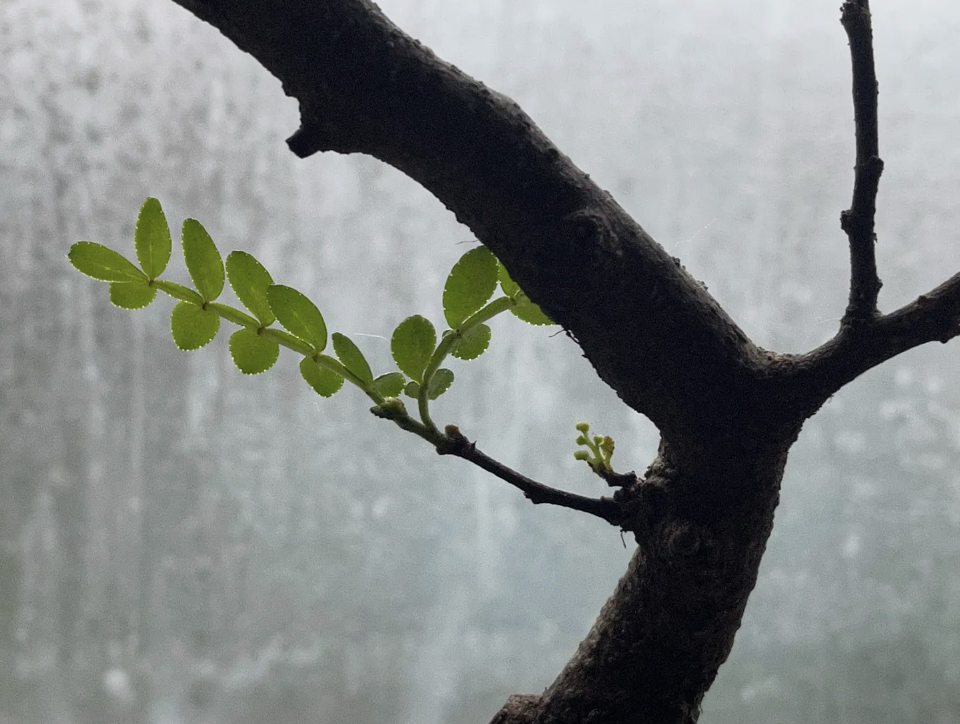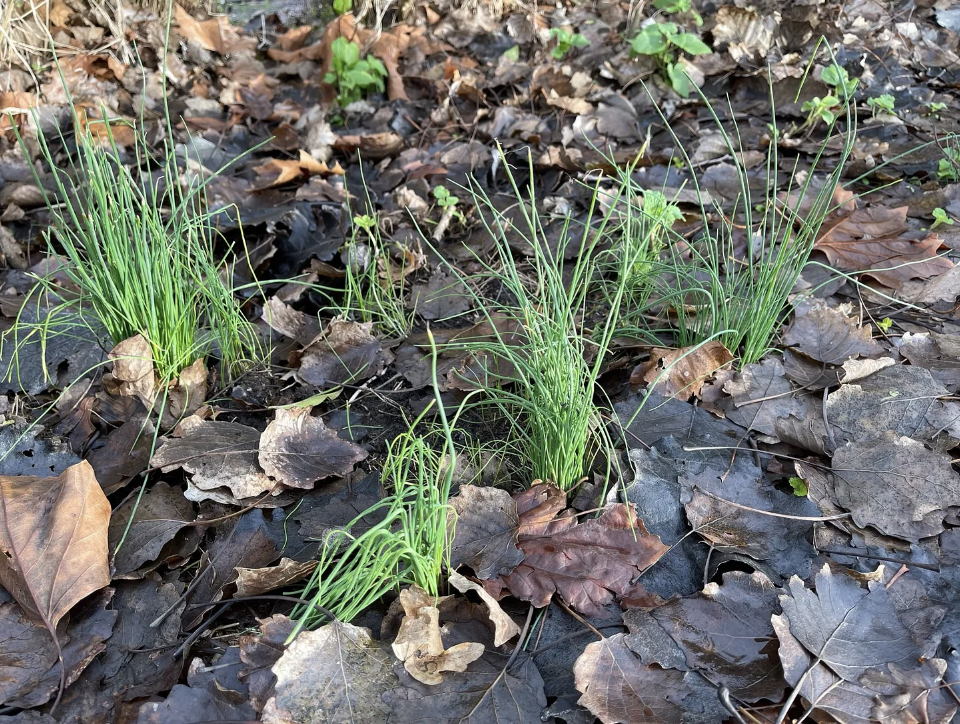On change and negative tech bias
It’s my Birthday today, and I am so excited because I found a little present in our house this week – a little surprise from our resident bonsai tree: flower buds! The tree turned from autumnal leaves to new buds around Christmas, but it was its first year in our house, so we weren’t sure if it would bloom (it is a blooming type, though). And here they are, little flowers on the way, coming soon!

In the UK, as the New Year arrives, so does spring. You can almost feel it in the air – in slight shifts of trees and in spring flowers gracefully popping out of the winder ground all around. One morning this week, I noticed the resident magpie pair attempting to build their nest on the tree at the back of our garden for a second time. Last year, their construction was too weak to withstand strong Bristolian winds, so I am excited to see they are trying again. Corvus kind is super smart, so I suspect they learned their lesson and will strengthen this one. I was so excited to see them inspect the damage and plan the new build.

Out in the park, I already see the Bristol garlic out; daffodils are sticking their leaves out of the ground towards the sun, too. Spring is definitely coming despite the gloomy weather. In fact, I suspect Nature is enjoying the winds and the rains. And so the cycle of Nature continues.
So, as I think about my 45th year on this planet, I also think about change and growth. This year, I will be doing a lot of education and writing about digital wellbeing. So, I was a bit sad this week, as I have experienced people who feel a strong resistance to digital opportunities. I find it unnatural that we are so resistant to change. Nature is change, and we ARE Nature…
Yes, it makes sense to be apprehensive about the new way of doing things or about shedding our biases. However, that is how we learn – we learn by trying new things, doing new things, or doing things differently.
Specifically, I was in a conversation about digital experience versus offline (in cyberpsychology called “grounded”) reality with people who strongly resist the notion that our brain may take virtual experiences seriously. I struggled to explain the loss that I feel each time I meet someone who degrades their own virtual experiences to the point of missing out on incredible opportunities for change and growth! Many of us live in a world where virtual and grounded reality are intertwined to the point of fluid transition. We make friends offline and maintain friendships online or vice versa. We cannot, simply cannot, ignore the vast amount of communication, collaboration and experiences that we all have online simply because we chose the negative tech bias as a default without much critical thinking.
Almost every single private conversation about the impact of digital technologies on mental health and wellbeing these days contains some form of assumption (teens on mobile phones, time wasted on online games, binge-watching Netflix ruining our evenings etc.). We have small expressions about this that we sneak into our language, and I hear them from even very well-established, innovative thinkers who don’t pay attention to those words at all.
What we don’t talk about are the benefits of Internet-facilitated communication (free access to information, affordable collaboration or business management tools, real-time connection with friends who are far away, free editing apps, endless smart mindfulness and sports apps, etc.). We are so conditioned to think badly of the Internet, that we give up our own agency and choice already when we think of it. Isn’t that quite incredible? We forget the positive and thus also give up on critical review – critical meaning exploring all complexities and angles of our wellbeing.
I think of our bonsai tree: if only we could withstand the bends and the cuts while also nurturing and directing our energies wisely, we could indeed bloom. We just need to persevere.
(Reflection)
All of this biased thinking is happening so smoothly that we may not even notice that we are doing it. So for my Birthday, I would like to offer you a simple practice of deconstructing our negative tech bias.
Q: Can you list all aspects of your digital and virtual experiences that – in your opinion – have a detrimental impact on your life, health and wellbeing? Start with “I think XY (for example: my online gaming) has a negative impact on my health and wellbeing” and continue with other examples. Do it fast, without much thinking. Make a long list.
Q: Can you look at all those affected areas and ask yourself: is that the case, is that really the case? If I really think deeply about this: is that Netflix series a waste of time or maybe a form of rest? Is that game a harmful activity, or is it my only way to hang out with university friends tonight and decompress after work? Also: if I didn’t play, what else would I be doing, and what would be the impact on my health?
Q: If it’s not the digital tech that has a negative impact on my wellbeing, what does? What are the real sources of my tiredness, stress, unhappiness, and anxiety?
Q: If you notice a discrepancy between your initial negative assumptions and reality, can you reflect on the source of the bias? Who told you that online gaming is addictive and toxic? Why did you believe that to be true? How can you check and research this to find out more?
Unpick every little myth you identify until you have a critical, balanced view of how digital technologies really, truly affect you – for worse or maybe even for better. Start paying attention to your language – because words matter, they can shape our perception of reality. And we would all want to have a better experience of reality, right?
(I will think about my own negative assumptions as much as I question my positive ones too. Sometimes it’s easier to start in other areas of life, so maybe I will look at that nest again and see if my curiosity carries any doubt – I do feel that the magpies may be picking up an unfair battle with local winds!
And if you want to practice the good impact of digital platforms on our lives, feel free to donate to my Facebook Birthday fundraiser here. Thank you. Have a light weekend!)
This post was originally posted on Substack in our Syl’s Liberation Psychologies Newsletter.

